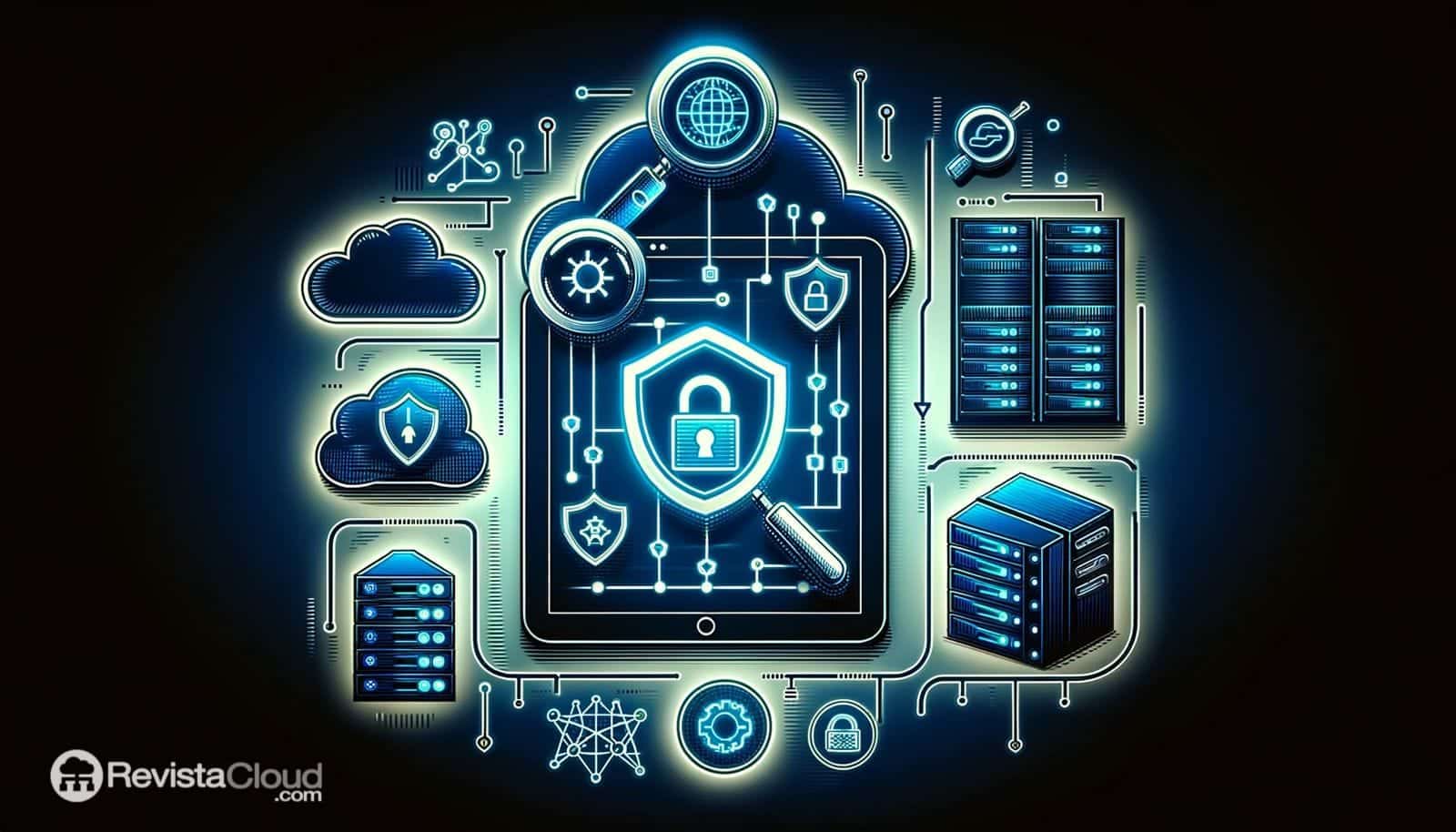Security in cloud hosting is a crucial topic in the field of information technology. As companies and individuals adopt cloud solutions to host their applications and data, it is essential to understand how security works in these environments, the associated risks, and how to effectively protect oneself. Here, we explore four key aspects of security in cloud hosting that may be unknown to many.
1. How Does Security Work in Cloud Hosting?
Cloud hosting involves using computational resources (such as servers, storage, and networks) provided by a cloud service provider. Security in these environments is based on a combination of technologies and practices designed to protect data integrity, confidentiality, and availability.
Cloud Security Model:
- Physical Security: Cloud providers often operate highly secure data centers with physical access controls, continuous monitoring, and protections against natural disasters.
- Network Security: They use firewalls, intrusion detection and prevention systems (IDS/IPS), and data encryption in transit to protect networks.
- Application Security: They implement secure development practices and security testing to protect applications running in the cloud.
- Data Security: Includes data encryption at rest and in transit, as well as access controls to ensure that only authorized users can access the information.
- Identity and Access Security: They use authentication and authorization systems to manage who can access what resources in the cloud.
Cloud service providers often offer advanced security tools and services, but the responsibility for security also lies with the user. Cloud security is a shared responsibility model, where both the provider and the customer have specific roles in protecting data and applications.
2. Are There Neighbors That Can Affect Your Website?
In the context of cloud hosting, computational resources are often shared among multiple clients in a public cloud environment. This can pose the risk of “noisy neighbors” or, more specifically, issues related to the security of shared instances.
Risks of Neighbor Contamination:
- Data Leakage: In shared environments, there may be risks of data leakage between different instances if security measures are not properly implemented.
- Denial of Service (DoS) Attacks: DoS attacks can affect multiple clients if the shared resource is overloaded.
To mitigate these risks, cloud service providers implement isolation techniques such as secure virtualization and data encryption. Additionally, customers can opt for private or hybrid cloud solutions for more control and security.
3. Is It Possible to Lose All Data?
One of the biggest fears when using cloud services is the potential loss of data. However, cloud service providers implement multiple layers of protection to prevent data loss.
Data Loss Protection Measures:
- Backup and Disaster Recovery: Most providers offer backup and recovery services that allow data restoration in case of loss.
- Data Replication: Data is replicated in multiple geographical locations to ensure availability in case of main data center failures.
- Disaster Recovery Plans: Include procedures and tools to quickly restore operations after a serious incident.
Despite these measures, the ultimate responsibility for data lies with the customer. It is vital to implement a proper backup strategy and regularly review recovery plans.
4. How Can You Prevent Vulnerabilities?
Preventing vulnerabilities in cloud hosting requires a combination of good security practices and appropriate tools.
Prevention Strategies:
- Regular Updates: Keep all systems, applications, and services updated to protect against known vulnerabilities.
- Continuous Monitoring: Use monitoring tools to detect suspicious activities and potential security breaches.
- Patch Management: Apply security patches in a timely manner to correct vulnerabilities in software.
- Security in Development: Implement secure development practices and conduct security testing to identify and remediate vulnerabilities in applications.
- Education and Training: Ensure that all users and administrators understand best security practices and how to identify potential threats.
Benefits of Cloud Server Security
Cloud servers offer several benefits in terms of security:
- Scalability of Security: The ability to adjust resources and security measures according to needs allows for flexible and adaptive protection.
- Access to Advanced Technology: Cloud service providers invest in advanced technologies and specialized equipment to ensure robust security.
- Cost-Efficiency: Cloud security can be more cost-effective than maintaining a dedicated data center, as the cost is distributed among many clients.
- Automatic Updates: Providers often apply security patches and updates automatically, reducing maintenance burden for customers.
In summary, security in cloud hosting is a critical aspect that requires understanding and attention from both the provider and the customer. With proper implementation of security measures and adoption of best practices, it is possible to effectively protect data and applications in the cloud.

